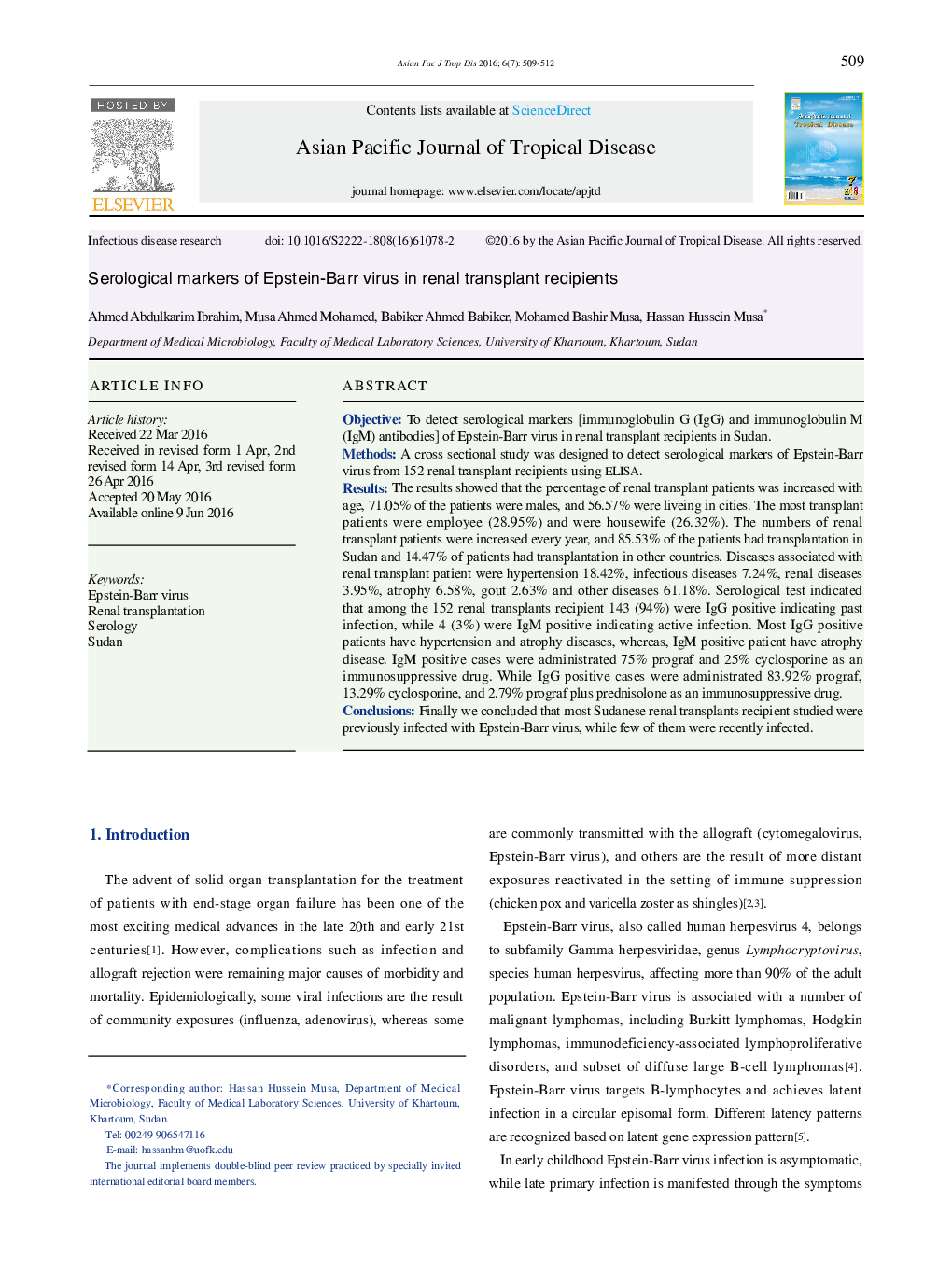| Article ID | Journal | Published Year | Pages | File Type |
|---|---|---|---|---|
| 3453954 | Asian Pacific Journal of Tropical Disease | 2016 | 4 Pages |
ObjectiveTo detect serological markers [immunoglobulin G (IgG) and immunoglobulin M (IgM) antibodies] of Epstein-Barr virus in renal transplant recipients in Sudan.MethodsA cross sectional study was designed to detect serological markers of Epstein-Barr virus from 152 renal transplant recipients using ELISA.ResultsThe results showed that the percentage of renal transplant patients was increased with age, 71.05% of the patients were males, and 56.57% were liveing in cities. The most transplant patients were employee (28.95%) and were housewife (26.32%). The numbers of renal transplant patients were increased every year, and 85.53% of the patients had transplantation in Sudan and 14.47% of patients had transplantation in other countries. Diseases associated with renal transplant patient were hypertension 18.42%, infectious diseases 7.24%, renal diseases 3.95%, atrophy 6.58%, gout 2.63% and other diseases 61.18%. Serological test indicated that among the 152 renal transplants recipient 143 (94%) were IgG positive indicating past infection, while 4 (3%) were IgM positive indicating active infection. Most IgG positive patients have hypertension and atrophy diseases, whereas, IgM positive patient have atrophy disease. IgM positive cases were administrated 75% prograf and 25% cyclosporine as an immunosuppressive drug. While IgG positive cases were administrated 83.92% prograf, 13.29% cyclosporine, and 2.79% prograf plus prednisolone as an immunosuppressive drug.ConclusionsFinally we concluded that most Sudanese renal transplants recipient studied were previously infected with Epstein-Barr virus, while few of them were recently infected.
